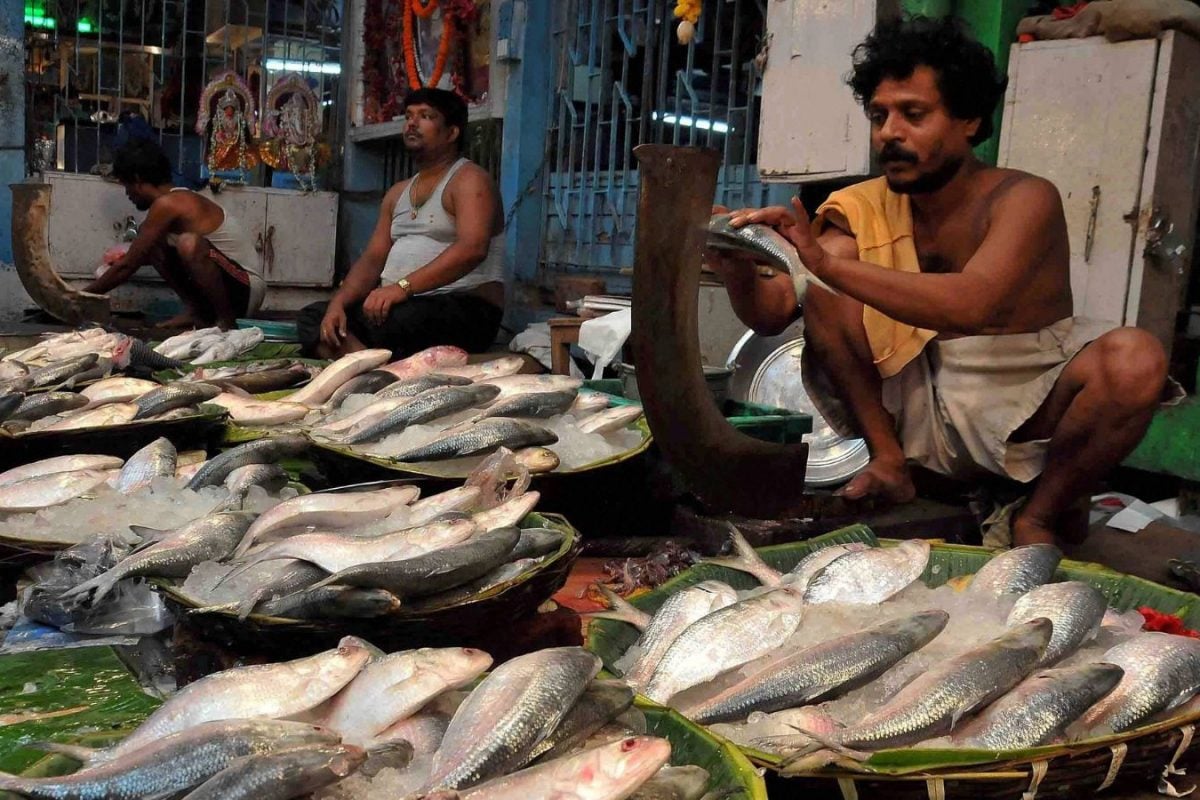

The Fish Importers Association of India has appealed to the Bangladesh government to permit hilsa exports to India during the upcoming Durga Puja festival, which is set to be celebrated from October 9 to 13. This appeal comes amid a backdrop of fluctuating policies and high demand for this prized fish in West Bengal, Assam, and Tripura during the festive season.
Hilsa holds immense cultural significance in Bengali cuisine and traditions, particularly during Durga Puja. Recognizing this, the Fish Importers Association has been importing hilsa from Bangladesh since 1996, with annual imports reaching approximately 5,000 metric tons through the Petrapole land customs station in West Bengal.
However, Bangladesh imposed a ban on hilsa exports in July 2012, a restriction that has remained in place despite numerous requests from Indian importers to lift it. Despite the ban, the Bangladesh government has allowed limited hilsa exports to India during Durga Puja from 2019 to 2023 as a goodwill gesture.
Earlier this month, amid uncertainty regarding hilsa shipments due to political unrest and a change of government in Bangladesh, the Association's secretary, Syed Anwar Maqsood, urged Bangladesh Foreign Affairs Advisor Touhid Hossain to allow exports for Durga Puja.
Initially, it seemed the interim government in Bangladesh would halt this tradition to prioritize domestic demand, with Farida Akhter, an advisor to the ministry of fisheries and livestock, stating that no hilsa would be exported to India this year to control domestic prices and ensure accessibility for lower-income households.
However, in a reversal of this decision, the Muhammad Yunus-led interim government has approved the export of 3,000 tonnes of hilsa fish to India for Durga Puja. The commerce ministry has asked applicants to contact its relevant wing to obtain export permission. The order is expected to be issued on September 25, with the first consignment anticipated to reach Kolkata after crossing the Benapole-Petrapole land border the next day.
Syed Anwar Maqsood, the FIA secretary, mentioned that the Bangladesh commerce ministry has already received around 50 applications for export and expects more now that the trade has been approved. He also noted that while Bangladesh allowed 79 companies to export a total of 4,000 tonnes in 2023, the actual quantity reaching India could be around 1,500 tonnes, as approval of large quantities did not translate into higher exports in the past three years. The trade must be concluded by October 22, before a 22-day hilsa fishing ban takes effect to allow the fish to lay eggs.
If the catch in Bangladesh is plentiful, traders estimate that imported hilsa weighing around 1kg will be priced around Rs 1,000-1,200 a kg in the wholesale market and Rs 1,400-1,500 in the retail market. However, a poor catch could raise import prices to Rs 1,500-1,600 a kg, resulting in retail prices of Rs 1,800-2,000 a kg.